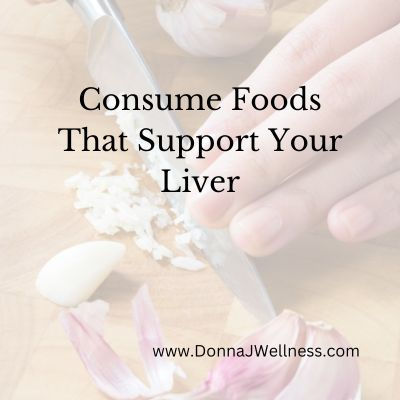Environmental Toxins and Weight Gain: Understanding the Connection
- Donna J
- Jun 12, 2024
- 4 min read
Updated: Jul 8, 2024

Have you ever wondered why it seems so hard to lose those extra pounds, despite your best efforts?
Well, the culprit might not just be your diet or lack of exercise.
Evidence shows that the environmental toxins in your surroundings may be playing a significant role in your weight loss struggles.
Let's delve deeper into this connection and explore how you can take action to minimize their impact on your body.
Unveiling the Culprits: How Environmental Toxins Disrupt Your Metabolism
Your environment is full of toxins. They’re in the air and the everyday products you use, from skincare and haircare to home cleaning products.
Substances, such as Bisphenol A (BPA), phthalates, and polychlorinated biphenyls (PCBs), can wreak havoc on your hormones and metabolism. They interfere with the production and function of crucial hormones like insulin and leptin, making it harder for our bodies to regulate appetite and release fat.
Endocrine Disruptors: Your Body’s Nemesis

Endocrine disruptors and obesogens are substances that can interfere with the body's endocrine system, disrupting hormone regulation and potentially leading to weight gain and obesity.
These compounds are found in various environmental sources such as pesticides, plastics, and certain chemicals in consumer products. Endocrine disruptors can mimic or block hormones, leading to dysregulation of metabolic processes, including appetite control, fat storage, and energy expenditure.
They can interfere with the production and function of hormones like insulin, leptin, and thyroid hormones, which are critical for maintaining a healthy weight.
Obesogens: Fat Storage Chemicals

Obesogens, a subset of endocrine disruptors that specifically promote fat accumulation.
These compounds can disrupt the body's ability to regulate fat metabolism, leading to increased fat storage and weight gain.
Obesogens can cause problems within a short span of time, but they can also bioaccumulate in the body and cause problems later in life.

Your Gut Microbiome
These toxins can also disrupt the balance of your gut microbiome, which plays a crucial role in regulating metabolism and immune function. When your gut bacteria are out of balance, it can lead to illness, disease and increased fat accumulation.

How to Detox:
Meet Your Lymphatic System
The lymphatic system plays a role in detoxification by removing toxins, metabolic waste, and cellular debris from the body. This process helps to prevent the buildup of harmful substances that can lead to inflammation, oxidative stress, and other health issues.
Here's how it works:
Lymphatic vessels: The lymphatic system is made up of a network of vessels that run throughout the body. These vessels collect excess fluid, waste products, and toxins from the tissues.
Lymph nodes: Small bean-shaped structures, nodes act as filtering stations where immune cells, can detect and eliminate harmful substances like bacteria, viruses, and toxins.
Lymph fluid: The fluid collected from the tissues. It flows through the lymphatic vessels and passes through the lymph nodes. As it moves through the lymph nodes, toxins and waste products are filtered out, and immune cells work to neutralize and remove harmful substances.
Lymphatic drainage: Toxins and waste products filtered out by the lymph nodes are eventually transported to larger lymphatic vessels, which ultimately drain into the bloodstream. From there, the liver and kidneys further process and eliminate these toxins from the body through urine and feces.
Maintaining a healthy lymphatic system is essential for effective detoxification and overall health.
Taking Control: Strategies to Minimize Exposure and Support Detoxification
While it may seem daunting to combat environmental toxins, there are steps we can take to reduce our exposure and support our body's natural detoxification processes. Opting for organic foods whenever possible can help minimize pesticide exposure, while avoiding plastic containers and opting for natural cleaning and personal care products can limit our intake of harmful chemicals.
Additionally, adopting a healthy lifestyle that includes regular exercise, stress management techniques, and a balanced diet rich in fruits, vegetables, and whole foods can bolster our body's ability to detoxify and mitigate the impact of environmental toxins.
To detox from environmental toxins, consider implementing the following strategies:
Lymphatic Drainage Massage To Remove Toxins

Lymphatic drainage massage helps move lymph from the tissues into the bloodstream and out of the body.

Dry Brushing For Detox
Dry brushing is another way to move lymph out of the body. It’s also an excellent way to keep your skin healthy and looking young.

Antioxidant-Rich Foods Support Detox
Increasing your intake of antioxidant-rich foods such as berries, leafy greens, and cruciferous vegetables supports the detox process of your body.

Stay Hydrated to Remove Toxins
Stay hydrated by drinking plenty of water throughout the day to support your body's natural detoxification processes.

Liver Supportive Foods For Detox
Incorporate liver supportive foods such as garlic, turmeric, and dandelion greens to help your body process and eliminate toxins.

Regular Exercise To Remove Toxins
Regular exercise promotes sweating, which moves toxins through the skin.

Relieve Stress For Detox
Implementing stress reducing activities like meditation, yoga, or deep breathing exercises, can prevent stress from impairing the detoxification pathways in the body.

Sauna or Steam for Detoxing
Consider using saunas or steam rooms occasionally to help support toxin elimination through sweating.
Minimize Exposure to Toxins
Minimize exposure to additional toxins by choosing natural cleaning and personal care products and opting for organic foods to reduce pesticide intake.
By integrating these practices into your routine, you can support your body's natural detoxification processes and reduce the burden of environmental toxins on your health.

Let's Take Action Together
Are you concerned about the impact of environmental toxins on your health and weight? Take the first step towards a healthier you by scheduling an appointment to discuss how you can remove these toxins from your body.
Remember, by being proactive and mindful of our surroundings, we can protect ourselves and future generations from the harmful effects of environmental pollution. Together, let's make strides towards a healthier, toxin-free environment for all.
Commentaires